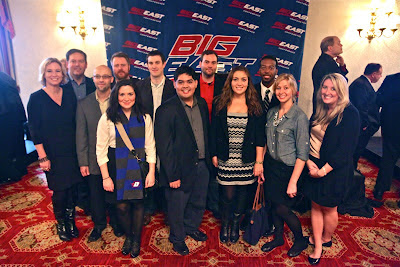When I was a student at Notre Dame, my dad (also an alum) wrote me letters as often as he could—maybe not every Sunday, but pretty close. I still have them all in a box, each carefully dated and numbered (my dad is an engineer through and through).
Every so often, I’ll pull one out to read. Today I grabbed letter #34, written on September 25, 1991. What strikes me is that, even now as an adult, his words feel just as relevant to my life as they did back then.

Here’s a snippet from that letter:
“I bought a book in Dallas a while back titled DO IT because I had made that phrase, ‘Do It,’ the working motto of my expanded group at work, and I was curious to see what it was all about. It’s really a modern philosophy book, with numerous short chapters about various topics of life. Each chapter is preceded by a thought-provoking quote and the first one in the book is by Sydney J. Harris as follows:
Regret for the things we did can be tempered by time: it is regret for the things we did not do that is inconsolable.
I think this quote pretty much applies no matter how old we are or what we are doing. Opportunities missed often do not present themselves again so DO IT while you can. This is the kernel around which the author develops the book. I notice Lou Holtz extols “just do it,” right on Lou!
The author talks about life’s four basic areas of activity:
- Marriage/family
- Career/profession
- Social/political
- Religious/spiritual
He also talks about the ‘I want it all’ syndrome where we think we are entitled to a significant goal from each category all at once. He says that you can spend equal amounts of time in each category, but don’t expect to get very far in any of them. This is quite true and I’m sure you recognize this fact if you analyze your activities at school. One phone call a week is about all the time you can spend for family. Marriage isn’t a high priority now, although some students may be distracted by this activity, sometimes to the detriment of the obvious primary goal of college which is career/profession.
Social activity is important, if for no other reason than to allow for some relief from the stresses created by the pursuit of developing a career. Social activity also leads to the development of the ‘whole person,’ the balancing of which will certainly enhance career aspirations. However, one must guard against becoming involved in other personal problems to the detriment of the primary task at hand.
Last, but certainly not least, is Religious/Spiritual. This activity ultimately determines your true worth to mankind and serves as the guiding light for the other three activities. This activity should be carefully nurtured and allowed to grow along with your primary goals.”
—Letter #34, September 25, 1991
Even now, these words ring true. We may all want to “have it all,” but life rarely works that way. When you try to give equal energy to everything, you often end up doing each thing only halfway. Focusing deeply on one primary goal, on the other hand, makes excellence possible.
That doesn’t mean we neglect the other areas—marriage/family, career, social, and spiritual—but it does mean understanding that life moves in seasons. At different times, some areas will demand more of us, while others wait their turn. The balance shifts, but over time, each one has its season in the spotlight.
For example, I spent nearly a decade focused on writing—publishing five books in ten years. This year, work and family have taken priority, but I know the time will come again when I’ll return to writing. Each season has its purpose.
What about you? Are there lessons you learned in college—outside the classroom—that still guide you today?
Want to check out the “DO IT” book? You can grab it on Amazon.
Cheers!






